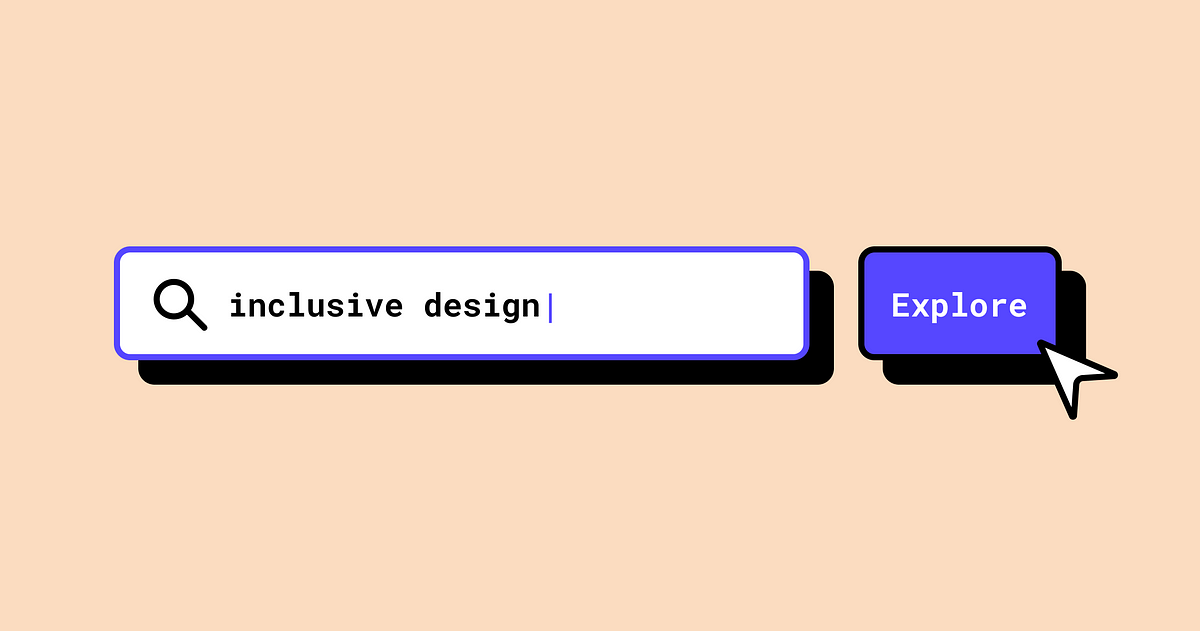
How inclusive design shaped me. Navigating work and life as a… | by Kristina Gushcheva-Keippilä | Nov, 2023
[ad_1]
I love RPGs and life simulation games. Growing up, The Sims franchise provided me with comfort and became the ultimate sandbox for crafting my own stories and worlds. In general, my favourite video game titles are those that don’t restrict players in how they can interact with the game world. There’s something special about the freedom to participate and interpret the narrative or game mechanics in transformative ways. From my perspective, this approach to game design not only creates countless gameplay scenarios but also expands the game’s world to a wider audience.
Fast forward to late 2019, I had always suspected that remote work was my preferred modus operandi long before the pandemic hit. I cherished such opportunities. It was rather embarrassing for me to share that I frequently experienced panic attacks while using public transport or that fluorescent office lights made me feel weirdly nauseous. I wasn’t sure how to present myself, both in terms of attitude and appearance.
Adulthood came with a whole new set of expectations that I struggled to grasp, leaving me feeling less valuable than my peers at both university and work.
Dealing with people in person has never been easy for me, primarily because much of my behaviour has been deemed “strange”. Classmates and colleagues would point out my eating habits during shared lunches, question my mannerisms in speech, or giggle at how animated I became while talking. Sometimes, they would even mock the way I phrased a sentence or failed to understand “obvious” jokes.
Here’s an anecdote from the pre-pandemic times: during a team meeting, a former colleague jokingly mentioned that I used up all my paid time off just by working remotely. I wasn’t sure how to react at the time, but I sincerely wonder if that person’s opinion has changed since then, as I write this in 2023.
Then the Covid pandemic began. On a personal level, staying at home brought me a great sense of relief. I found myself becoming calmer, more composed, and more focused. I learned to manage my schedule and establish routines. For the first time in my life, my sleeping patterns improved. However, I also felt that my experience of staying at home was different from that of my colleagues and friends.
The change in work culture coincided with my career shift. I began exploring design areas that captivated my interest. The Nordea Design System project uncovered my previously untapped interest in design processes, interaction design, and systems thinking.
Collaborating with individuals who had extensive experience in UX was exciting. New learning opportunities emerged both within and outside the company, and I was eager to pursue them all. Connecting the dots and solving problems felt purposeful and satisfying.
This change also provided a unique opportunity to become more proactive and vocal through digital communication. In my previous roles, developing social skills was never a requirement, and to be honest, my confidence in the communication department was shaky. This time, I had a safe space to try to be more present in an environment that felt comfortable and natural to me.
Earlier in my career, I often struggled to create work that fulfilled me. I didn’t know what my aspirations were. However, delving into the field of UX and becoming more active in digital spaces overall gave me a sense of belonging. It felt right.
In late 2020, several months into the pandemic, I discovered that I have autism.
[ad_2]
Source link


